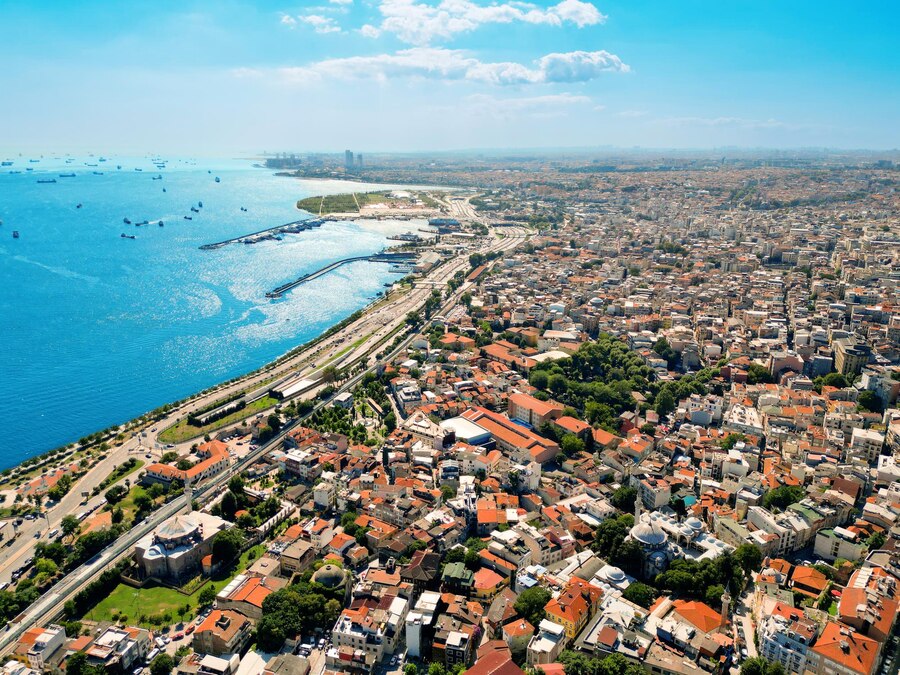Turkey, straddling the crossroads of Europe and Asia, offers an unparalleled travel experience that combines rich history, vibrant culture, and stunning natural beauty. For Jordanian travelers, Turkey provides a diverse range of attractions that cater to various interests, from historical exploration and cultural immersion to breathtaking landscapes and culinary delights. Here’s a guide to help Jordanians make the most of their Turkish adventure.
Istanbul: The Cultural Melting Pot
Start your journey in Istanbul, Turkey’s largest city and a bridge between East and West. Istanbul is renowned for its rich cultural heritage and historical landmarks. The Hagia Sophia, originally a cathedral and later a mosque, is a must-visit for its stunning architecture and historical significance. Just a short walk away, the Topkapi Palace offers a glimpse into the opulent lifestyle of the Ottoman sultans. Explore the bustling Grand Bazaar for an immersive shopping experience where you can find everything from spices and textiles to traditional Turkish souvenirs.
The city’s vibrant nightlife and culinary scene are not to be missed. Enjoy traditional Turkish dishes like kebabs, mezes, and baklava at local eateries, or savor the city’s modern dining options with a view of the Bosphorus Strait.
Cappadocia: A Land of Fairy Chimneys and Hot Air Balloons
Next, head to Cappadocia, a region famous for its unique geological formations and fairy-tale landscapes. The fairy chimneys, towering rock formations created by volcanic activity, are a sight to behold. For a truly unforgettable experience, take a hot air balloon ride at sunrise. From the sky, you’ll get a breathtaking view of the surreal landscape, with its valleys, rock formations, and ancient cave dwellings.

Cappadocia also offers opportunities to explore its extensive network of underground cities and cave churches, which have been carved into the soft volcanic rock. The region’s local wines and traditional Turkish breakfasts are also worth experiencing.
Pamukkale: The Cotton Castle
Pamukkale, which translates to “Cotton Castle” in Turkish, is famous for its thermal mineral waters and white travertine terraces. These stunning natural formations have been created over thousands of years by the flow of hot mineral-rich waters. A dip in the natural thermal pools at the base of the terraces is a relaxing way to unwind while taking in the unique scenery.

Nearby, the ancient city of Hierapolis adds a historical dimension to your visit. Explore the well-preserved ruins, including a theater, necropolis, and the impressive Roman baths.
Ephesus: An Ancient Marvel
Ephesus is one of the best-preserved ancient cities in Turkey and offers a fascinating glimpse into the past. The Library of Celsus, a stunning Roman building with an intricately decorated facade, is among the most impressive ruins. The Great Theater, capable of seating 25,000 spectators, is another highlight.
As you wander through the ancient streets of Ephesus, you’ll encounter the remnants of a once-thriving city, including the Temple of Artemis, one of the Seven Wonders of the Ancient World. Ephesus provides a vivid insight into the grandeur of ancient civilizations.
Antalya: The Mediterranean Gem
Antalya, located on the Turkish Riviera, is known for its beautiful beaches, charming old town, and luxury resorts. The Kaleiçi (Old Town) area features narrow streets, historic Ottoman houses, and the iconic Hadrian’s Gate. Antalya’s picturesque harbor and beaches are perfect for relaxation and water sports.

The nearby Düden Waterfalls and Kursunlu Waterfalls offer refreshing natural escapes and are ideal spots for picnicking and nature walks.
Travel Tips for Jordanians
1- Visa Requirements: Jordanians need a visa to enter Turkey. Apply for an e-Visa online for convenience.
2- Currency: The local currency is the Turkish Lira (TRY). While credit cards are widely accepted, it’s useful to carry some cash for small purchases.
3- Language: Turkish is the official language, but English is commonly spoken in tourist areas.
4- Cultural Etiquette: Turkish culture is known for its hospitality. When visiting mosques, dress modestly and respect local customs.
5- Transportation: Turkey has an extensive public transportation network. In cities, consider using trams, buses, or taxis. For long-distance travel, trains and buses are reliable options.
Turkey offers Jordanian travelers an enriching experience that blends historical exploration, cultural immersion, and natural beauty. Whether you’re exploring ancient ruins, enjoying unique landscapes, or indulging in local cuisine, Turkey promises an unforgettable journey. Embrace the adventure and discover why Turkey is a top destination for travelers from around the world.

